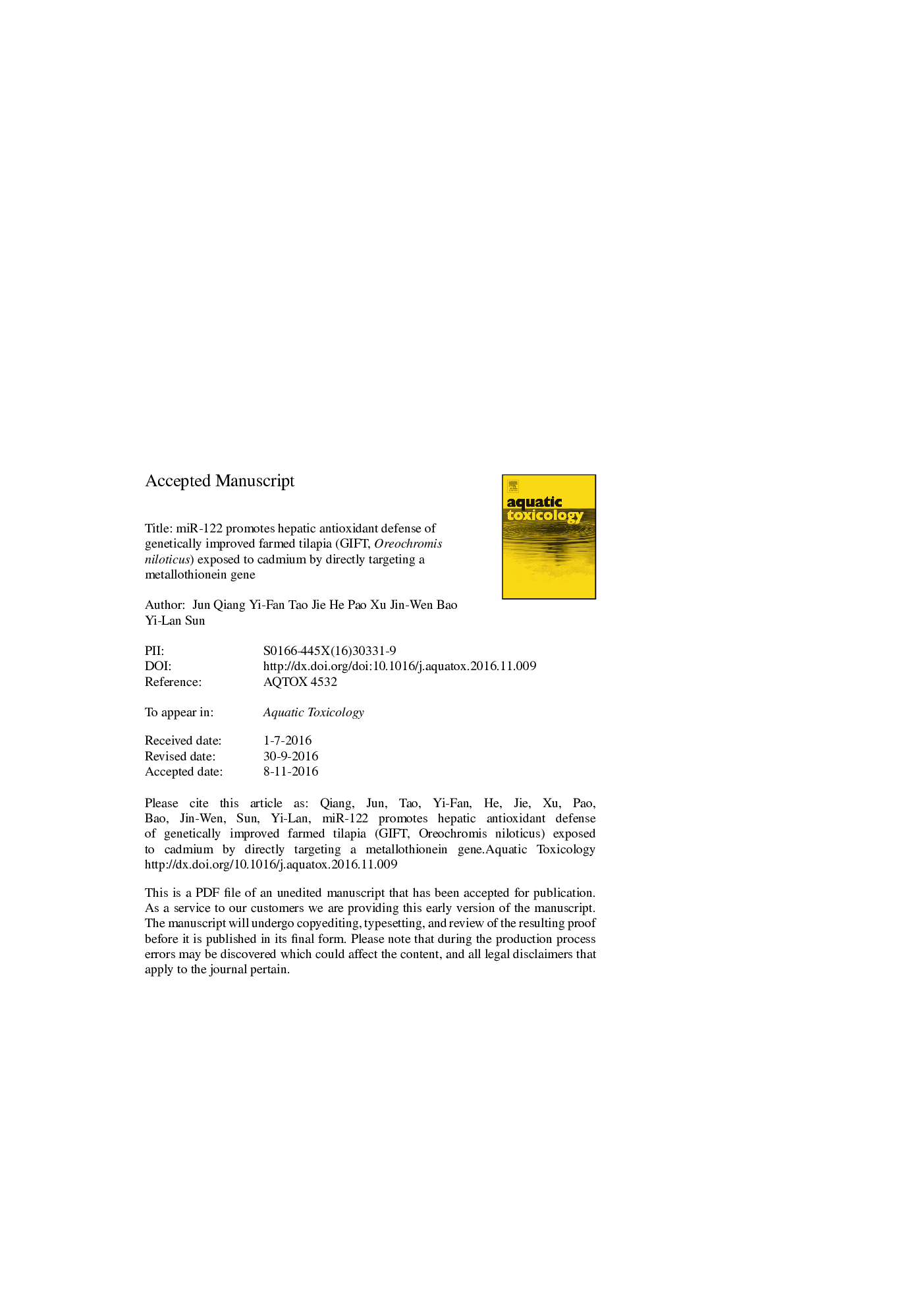| Article ID | Journal | Published Year | Pages | File Type |
|---|---|---|---|---|
| 5764338 | Aquatic Toxicology | 2017 | 33 Pages |
Abstract
MicroRNAs (miRNAs) are small, non-coding RNAs that regulate target gene expression by binding to the 3â²untranslated region (3â²UTR) of the target mRNA. MiRNAs regulate a large variety of genes, including those involved in liver homeostasis and energy metabolism. Down-regulated levels of hepatic miR-122 were found in genetically improved farmed tilapia (GIFT, Oreochromis niloticus) exposed to cadmium (Cd) stress. Here, we report for the first time that reduction of miR-122 post-transcriptionally increased metallothionein (MT) mRNA levels by binding to its 3â²UTR, as shown by a 3â² UTR luciferase reporter assay. The expression levels of miR-122 were negatively related to MT levels in GIFT under Cd stress. We performed in vivo functional analysis of miR-122 by injecting the fish with a miR-122 antagomir. Inhibition of miR-122 levels in GIFT liver caused a significant increase in MT expression, affected white blood cell and red blood cell counts, and serum alanine and aspartate aminotransferase activities, and glucose levels, all of which may help to relieve Cd stress-related liver stress. miR-122 silencing modulated oxidative stress and stimulated the activity of antioxidant enzymes. Our findings indicate that miR-122 regulated MT levels by binding to the 3â²UTR of MT mRNA, and this interaction affected Cd stress induction and the resistance response in GIFT. We concluded that miR-122 plays an important role in regulating the stress response in GIFT liver. Our findings may contribute to understanding the mechanisms of miRNA-mediated gene regulation in tilapia in response to environmental stresses.
Related Topics
Life Sciences
Agricultural and Biological Sciences
Aquatic Science
Authors
Jun Qiang, Yi-Fan Tao, Jie He, Pao Xu, Jin-Wen Bao, Yi-Lan Sun,
